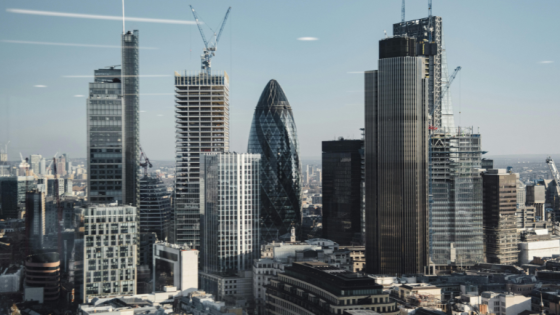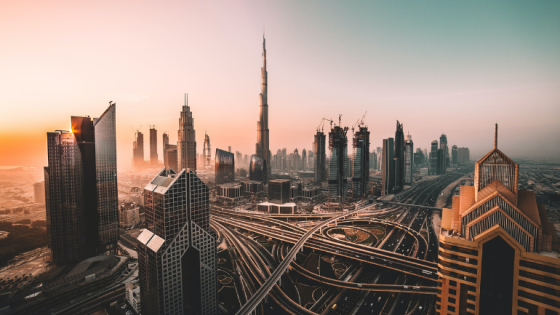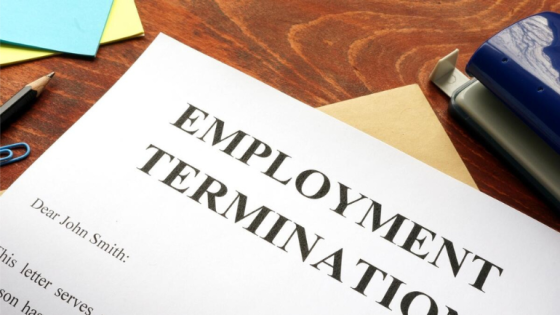Contents
- 1 Business Infrastructure UAE & Market Analysis
- 2 Business Infrastructure UAE & Market Trends
- 3 UAE Business Infrastructure Industry
- 4 UAE Infrastructure Industry Sector
- 5 Real Estate Sector in The United Arab Emirates
- 6 Transportation & Road Infrastructure Projects
- 7 UAE Infrastructure Opportunities
- 8 UAE Infrastructure & Logistics
- 9 UAE Business Council Promotes Infrastructure & Logistics
- 10 UAE Infrastructure Development & Economic Growth
- 11 UAE Ranks Fourth Globally in Infrastructure Quality
Business infrastructure UAE is an investment, and energy is prioritised in the United Arab Emirates, including transportation, utilities, decarbonisation, renewable and nuclear energy generation, and addressing persistent water constraints. The government’s intense dedication and resources resulted in several projects and possibilities for UAE construction and engineering enterprises.
Recent significant projects announced include the Abu Dhabi National Oil Company’s (ADNOC) Al-Nouf seawater treatment plant, Dubai Municipality’s plan to build a strategic sewerage tunnel, and other construction projects such as the redevelopment of Dubai’s Mina Rashid and the Dubai International Financial Centre.
Read more: Business Funding Consultants Dubai
Business Infrastructure UAE & Market Analysis
The UAE’s infrastructure is expected to develop by about 5% throughout the predicted period. Under its 2017-2021 plan, the UAE’s Ministry of Infrastructure Development planned to start 36 projects, including federal road and maintenance projects and security, education, health, and services advancements, totalling USD 2.7 billion (AED10 billion). The building and upkeep of federal roads cost USD 920.3 million (AED3.38 billion). The implementation and maintenance of government buildings cost USD 1.8 billion (AED6.62 billion), whereas the budget for four road implementation projects is USD 212.3 million (AED780 million).
Six new health centres and hospitals will also be opened in the UAE as part of the 36 projects, with a total cost of almost USD 95.3 million (AED350 million). Security building improvements will also cost USD 142.9 million (AED 525 million). The ministry also intends to develop four new schools at USD 163.3 million (AED600 million) and five public government buildings for USD 41.4 million (AED152 million). The projects address the demands of diverse regions around the UAE and were designed to coincide with the country’s rapid growth and development, necessitating advanced infrastructure building.
Read more: Business Financing UAE; Your Guide to SME and Corporate Business Loans
Business Infrastructure UAE & Market Trends
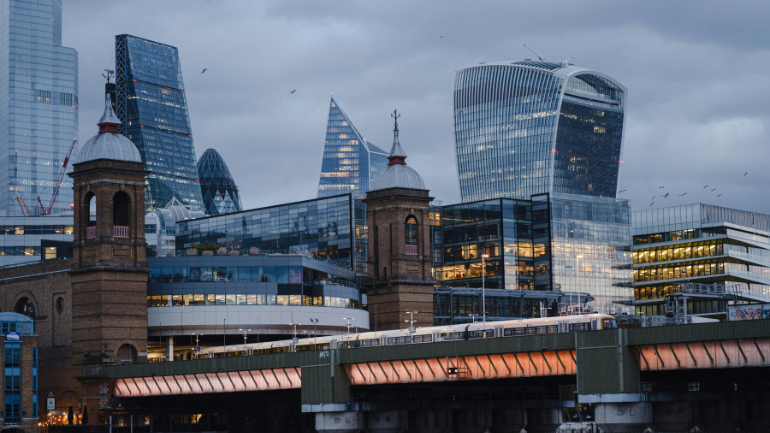
The municipality of Abu Dhabi City has announced the commencement of four projects to improve roads and infrastructure on the island of Abu Dhabi. The projects included developing rainwater drainage networks, separate works for Abu Dhabi Island’s (east and west) basins, improving the Marina Al Bateen Street area, developing internal roads, and establishing surface parking and public spaces for the West 58 and West Basin 69, at a total cost of Dhs288,284,494.
In 2019, the Department of Transportation notably provided integrated highways and road networks totalling over 25,000 kilometres. Thousands of everyday commuters now have more manageable and more accessible transport options.
Read more: Annual Leave Entitlement UAE
UAE Business Infrastructure Industry
The infrastructure market in the Emirates UAE is highly competitive, with several big multinational firms. During the projection period, the sector will present growth prospects, which are expected to increase market competitiveness. There is evidence of consolidation, with a few competitors controlling a sizable portion of the industry. The top 5 Infrastructure Market Leaders in the UAE:
- Aegion Corp.
- Bechtel.
- AE Arma-Electropanc.
- CB&I LLC.
- Fluor Corp.
Read more: Business Opportunities UAE: Profitable Ideas for Successful Businesses in Dubai
UAE Infrastructure Industry Sector
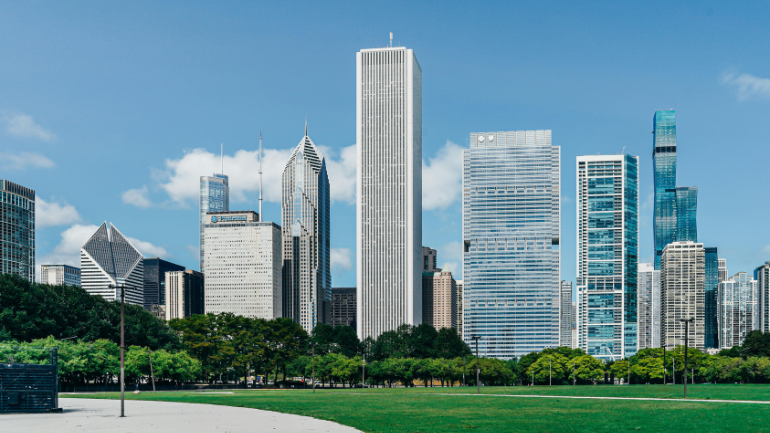
The infrastructure sector in the United Arab Emirates includes expanding construction projects in social, transportation, extraction, and manufacturing infrastructure. In addition to the report’s breadth, it examines the essential actors and the competitive landscape in the UAE’s infrastructure. According to experts, the UAE’s construction sector is predicted to rebound strongly over the next five years, with the industry’s value increasing by up to 4.7% annually. The country’s development program will promote growth by expanding the country’s industrial, transportation, and energy infrastructure.
As part of the “Projects of the 50” initiative, the UAE government intended to construct several projects to accelerate economic development and transform the country into a comprehensive hub for all sectors. It plans to attract $149.8 billion in foreign direct investment (FDI) over nine years.
Read more: UAE Industry Trends; Forecast growth for ICT sector & Construction Market Size
Real Estate Sector in The United Arab Emirates
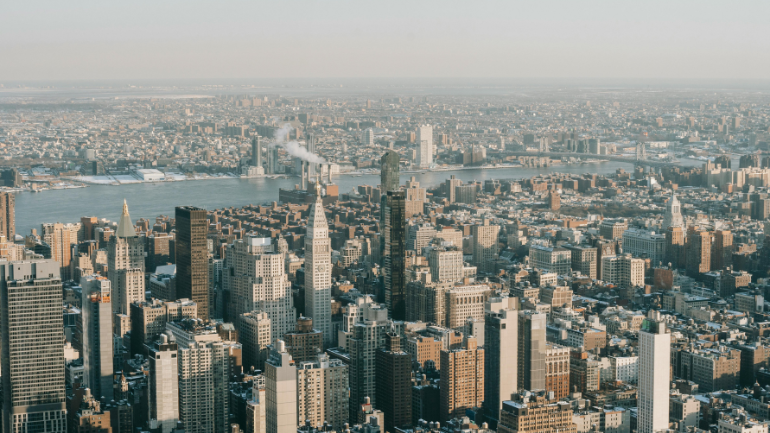
The UAE’s real estate market had a price increase following COVID-19, owing to tourism and other economic activity, the favourable influence of the Expo Dubai World’s Fair on the real estate and tourist industries, and the restoration of international travel to normal levels. Prices in numerous areas of Dubai’s property market have risen dramatically in the last year, boosting interest in new buildings.
Mega developers in the main emirates of Dubai and Abu Dhabi launched new development projects last year, all of which sold out quickly. Prices of high-end residences in Dubai are predicted to rise by 6% to 7.9% in the foreseeable future, representing one of the world’s most significant real estate price increases.
Read more: UAE Job Market Trends; job opportunities in demand in hiring market trends
Transportation & Road Infrastructure Projects
Transportation and road infrastructure development remains essential to the UAE’s ability to meet the needs of its growing population and increasing number of vehicles. This is consistent with the government’s aims to increase urbanization and tourism in Abu Dhabi and Dubai. The UAE has an extensive transportation and road infrastructure project pipeline, which includes the $11 billion Etihad rail project, the $5.9 billion projected hyperloop project between Dubai and Abu Dhabi, the $2.7 billion Sheikh Zayed double-deck road project, and others.
The growing demand for urban transportation, combined with the government’s efforts to boost tourism and expand transportation infrastructure, will drive rail and road growth throughout the country.
Read more: UAE Career Development Opportunities
UAE Infrastructure Opportunities
A surge in private-sector initiatives and increased government expenditure and investment plans has rekindled market optimism. Despite severe competition from local developers, US businesses dominate the design and construction markets in the UAE. Local developers increasingly seek efficient and digitally integrated project planning, staffing, monitoring, and delivery procedures. American enterprises providing innovative digital technology solutions would have more opportunities. Recent trends show a growing demand for technologies such as:
- Building Information Modeling (BIM).
- Augmented Reality (A/R).
- Advanced Construction Wearables & Exoskeletons.
- Internet of Things (IoT) data applications.
- Drones in construction fitted with radio frequency identification (RFID).
- 360° video capturing technologies.
- 3D printing and scanning technology, including 3D construction.
Read more: UAE Conservation Biology: United Arab Emirates Winning Wildlife Conservation Efforts
UAE Infrastructure & Logistics
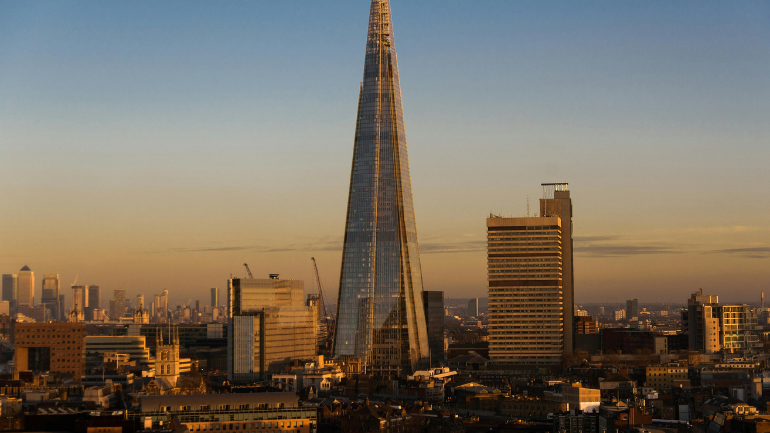
Since its inception in 1971, the United Arab Emirates government has invested significantly in world-class ports, airports, highways, power plants, logistics facilities, and other infrastructure. These foresightful investments have paid off handsomely, transforming the UAE into a business, trade, travel, tourism, and transhipment hub for the MENA region. The United Arab Emirates has historically relied on major American corporations to improve its infrastructure. For example, AECOM helped build the UAE’s national railway (Etihad Rail), Abu Dhabi International Airport, and Saadiyat Island. Bechtel, in turn, has contributed to construction at Dubai International Airport and Khalifa Industrial Zone Abu Dhabi (KIZAD).
Meanwhile, Parsons has worked on Abu Dhabi’s highways, the Dubai Metro, Abu Dhabi International Airport, Etihad Rail, and Saadiyat Island. Jacobs and its predecessor, CH2M, have worked on Etihad Rail, the Dubai Metro, and the Expo 2020 Dubai site.
While top US corporations have contributed to the development of much of the infrastructure that has made the UAE what it is today, this infrastructure has also drawn many more US companies to establish operations there. For example, the Jebel Ali Free Zone (JAFZA), established in 1985 to increase trade and container throughput at the Jebel Ali Port, is home to 8,600 enterprises from 100 nations, including many important U.S. companies. Furthermore, many major American corporations are building facilities in Dubai South, a new free zone at what will become the world’s largest airport.
At the same time as US corporations have contributed to the development of UAE infrastructure, UAE companies have also made considerable investments in US infrastructure. Gulftainer, based in Sharjah, has made billions of dollars in investments in the ports of Wilmington, Delaware and Cape Canaveral, Florida. Gulftainer’s investment in Delaware produces thousands of local jobs while increasing the port’s shipping volume.
Read more: UAE Climatic Zones: Knowledge Portal to Dubai’s Weather
UAE Business Council Promotes Infrastructure & Logistics
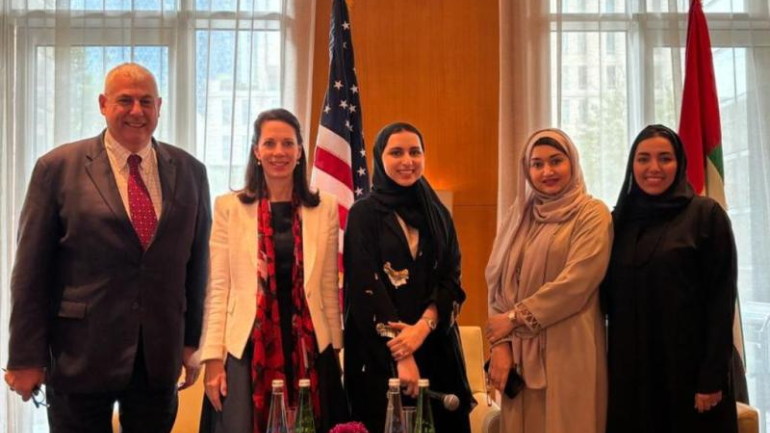
The US-UAE Business Council promotes bilateral ties in infrastructure and logistics by informing members about upcoming tenders, supporting bids, and connecting them with relevant private sector and government entities through events with the UAE Ministry of Energy and Infrastructure and Dubai Electricity and Water Authority.
At the same time, the Business Council frequently emphasises how the UAE’s world-class infrastructure creates a favourable environment for US firms through activities such as hosting Dubai FDI delegations of leading UAE free zones to the United States, bringing US companies to UAE free zones such as Dubai South, and engaging with Gulftainer and the Delaware region. The Business Council has also underlined the importance of US-UAE infrastructure linkages through webinars with logistics CEOs and free zone authorities.
UAE Infrastructure Development & Economic Growth
The United Arab Emirates’ non-oil sector’s contribution to GDP has increased over the last thirty years thanks to many industry advantages, including real estate, trade, tourism, construction, finance, shipping, and processing. This resulted in the success of the UAE’s economic market. The UAE boasts a stable political climate, a secure community, and positive connections with major countries. Although the UAE is active in specific war zones, it does not impact the overall situation. It boasts an abundance of oil and gas resources. It is one of the wealthiest countries in the region and the globe, and the government has implemented a comprehensive growth strategy, including measures to boost the non-oil and gas sector.
Although the UAE has the most diverse economy in the GCC, it remains heavily reliant on petroleum (oil). Except for Dubai, the majority of the UAE relies on oil earnings. Petroleum and natural gas play critical economic roles, particularly in Abu Dhabi. In 2009, oil exports accounted for more than 85% of the UAE’s economy. While Abu Dhabi and other UAE emirates have been cautious in their diversification efforts, Dubai, which has considerably fewer oil reserves, has been more daring in its diversification strategy. In 2011, oil exports comprised 77% of the UAE’s federal budget.
The United Arab Emirates places a high value on infrastructure construction, seeing it as the foundation for economic and social progress. Since the 1970s, the UAE government has invested substantially in infrastructure to create a conducive climate for foreign money to enter Dubai. The United Arab Emirates is the region’s most important financial and traffic centre, with a faultless legal system, a clean government, and a favourable investment climate.
The overall economy grew despite being impacted by the 2009 Dubai financial crisis, 2014 international oil prices, and other harmful factors. The United Arab Emirates, as an important Middle Eastern hub and the old maritime Silk Road of the crucial station, has “The Belt and Road” strategic opportunities. Regarding oil prices, the UAE’s non-oil economic development is vital, infrastructure development continues to increase steadily, and investment risk is minimal.
Read more: UAE Desert Climate; Guide to Emirates Climate Change and Weather in the United Arab Emirates
UAE Ranks Fourth Globally in Infrastructure Quality
The UAE is developing itself as a worldwide infrastructure superpower. Its significant improvement in infrastructure quality demonstrates a solid commitment to progress and development. The UAE has dramatically improved infrastructure quality, moving up four points to fourth place in the World Economic Forum’s (WEF) 2023 competitiveness assessment. This success reflects a decade-long commitment to infrastructure development, as seen by an investment of over $3.5 billion in 258 critical projects over the last decade.
The UAE remains unwavering in its commitment to infrastructure development, allocating an additional $2.45 billion for 127 projects in the coming five years. This commitment is reflected in the recently adopted federal budget for the 2024-2026 roadmap, which includes roughly $700,000, or 4% of the general budget, for infrastructure and economic resources.
Suhail bin Mohammed Al Mazrouei, Minister of Energy and Infrastructure, credits the achievement to the government’s consistent support: “Following the orders of our wise leadership, the Ministry is eager to implement initiatives and projects that help the UAE’s development and competitiveness”.
Read more: UAE Mountains; Emirates Mountains Jebel Jais Hajar Mountain in Ras Al Khaimah
What is the infrastructure in UAE?
The infrastructure of the United Arab Emirates includes rising construction projects in several sectors, such as social infrastructure, transportation infrastructure, extraction infrastructure, and manufacturing infrastructure.
What is the business environment in the UAE?
The UAE offers a favourable business climate. Its excellent infrastructure, professional experience, and tailored services give it an advantage over other countries. According to the World Bank’s 2020 Ease of Doing Business Report, the UAE ranks 16th internationally.
How much does the UAE spend on infrastructure?
The Ministry of Energy and Infrastructure has stated that it carries out 129 development projects costing roughly AED11.8 billion as part of its five-year plan (2018-2023).
Does Dubai have good infrastructure?
Dubai’s world-class infrastructure enables it to manage large volumes of products. Three billion people reside within a four-hour flight of Dubai, and another four billion are within eight hours.
The UAE’s ambitious aim goes beyond just the business infrastructure UAE. Emphasises the government’s focus on ensuring integrated technological excellence for airports, seaports, the urban road network, tourist sites, hotels, and all types of transportation, as well as the quality of electricity, communications, and all public services and facilities to provide the necessities of a decent life for all citizens and ensure their social and economic security.
